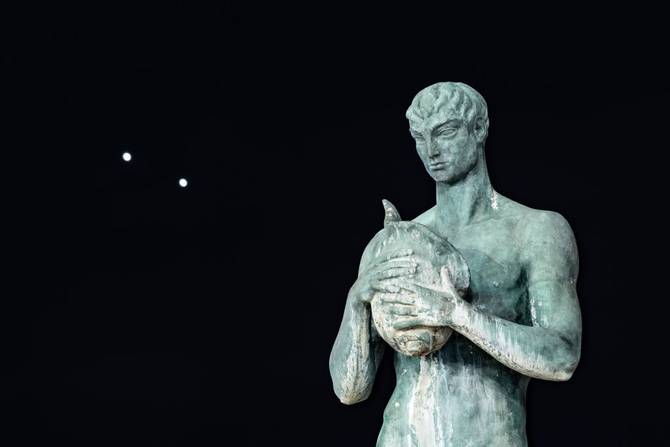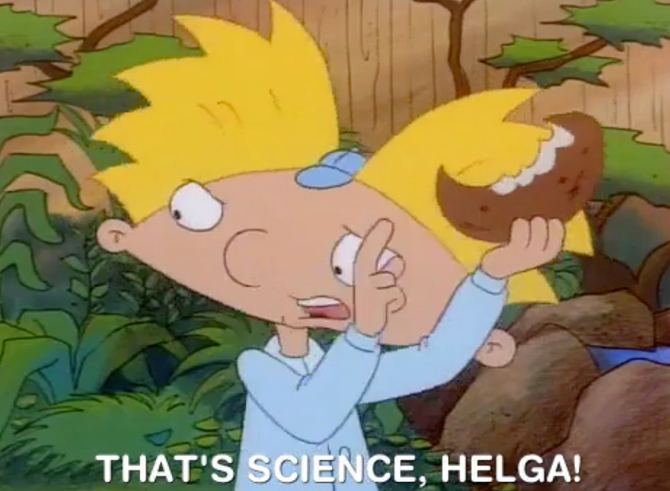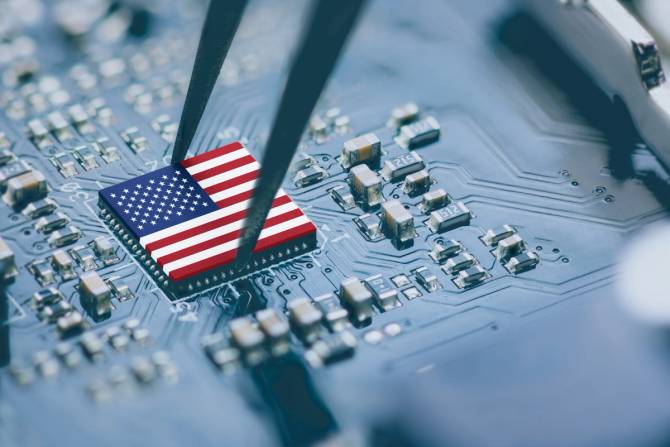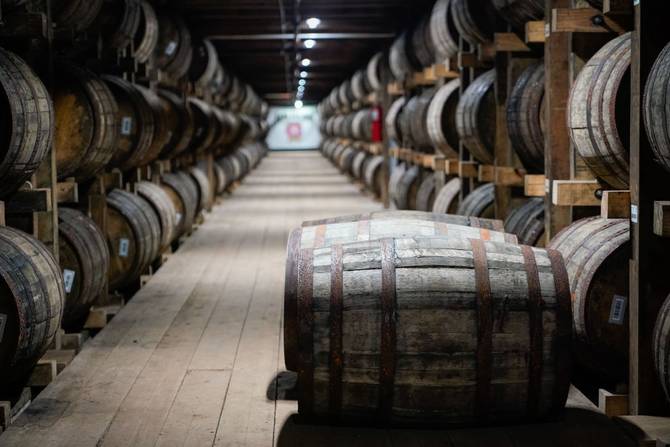|
|
|
|
|
|

Yes, those are palm trees in California getting pelted with snow. Josh Edelson/AFP via Getty Images
|
|
|
The wackiest headlines from the week as they would appear in a Classifieds section...
Careers
OUTERSPACE HAIR HOLDER: The DNA from four dead US presidents—Eisenhower, Kennedy, Reagan, and Washington—was added to a planned rocket launch headed to deep space. The craft will also carry cremated remains of Star Trek creator Gene Roddenberry and other famous sci-fi pioneers. No idea what that group will chat about as they float through the cosmos.
ISLAND COUNTER: Japan discovered it has 7,000 more islands than it previously realized. The country better start brainstorming a lot of names.
BRITISH VEGGIE HUNTER: The UK is facing a vegetable shortage, and no one’s quite sure why they can’t find cucumbers. Experts suggest it’s a mix of Brexit effects, climate change impacts, and the UK’s reliance on other countries to supply their salad fixings.
Personal
SWIFTIE DEPT: US Attorney General Merrick Garland is a huge Taylor Swift fan, the WSJ reported. He quotes her lyrics in legal arguments and even displays her CDs in his office. “My favorite song is ‘Shake It Off,’” he said.
ISO PYRAMID BASE: Nebraska cheerleader Katrina Kohel competed alone at the state championship after her teammates left the squad days before the competition. Kohel ended up placing eighth out of 12, and didn’t even have to worry about anyone dropping her.
For sale
USED BUT LIKE-NEW COOKIES: A new Girl Scout cookie, Raspberry Rally, is sold out, but you can still find it on resale sites with a huge markup. On eBay, a single box is selling for as much as $79.99. That’s equivalent to almost 16 boxes of the superior Tagalong.
SOMETHING BLUE: The US marriage rate has fallen nearly 60% in the last 50 years as people have delayed the storied tradition of their uncle getting blackout drunk near their friends, or skipped it altogether.
UNUSED BRAIN CHIPS: The FDA has reportedly rejected an application from Neuralink, Elon Musk’s medical device company, to test its brain implants in humans. The agency had several concerns, including the risk of tiny wires in the chip shifting to other areas of the brain.—MM
|
|
|
|
|
|
Unlike other cards that make you wait a month (or more) to get your cash back, Apple Card’s Daily Cash is exactly what it sounds like: cash back every day.
So don’t miss out—it’s your last chance to earn $75 Daily Cash when you spend $75+ in your first 30 days with a new Apple Card using this link by 3/6.
With Apple Card, you get up to 3% on everything you buy. Nope, you don’t need to convert points to cash. And Daily Cash never expires or loses value.
As if you needed another reason to apply, Apple Card has no fees. No annual, late, or other hidden fees.
Don’t miss out on your Daily Cash.
Terms apply.
|
|
|
|
Lorenzo Di Cola/NurPhoto via Getty Images
A statue in L'Aquila, Italy, snagged a front-row seat to the “conjunction” between Venus and Jupiter in the night sky this week. Conjunctions happen when planets orbiting the sun come across the same plane from our perspective on Earth. But while Venus and Jupiter appeared like they were right on top of one another, just keep in mind that they are still 400 million miles apart. Space…it’s big  . .
|
|
|
Hey Arnold!/Paramount Global
Here are some illuminating scientific discoveries from the week to help you live better and maybe even wake up feeling refreshed.
 Scientists want to explore blocking the sun. Shooting sulfur dioxide into the atmosphere to reflect the sun’s rays may sound like a far-fetched way to cool the Earth, but an open letter signed by more than 60 prestigious scientists argues the time has come to at least consider it. They say “solar geoengineering” is worth serious study despite the possibility of nasty side effects because we won’t be able to lower the Earth’s temperature enough by reducing greenhouse gas emissions alone. But other scientists don’t want to go near this tech. They claim it’s only really appealing to governments and corporate polluters that don’t want to make significant changes. Scientists want to explore blocking the sun. Shooting sulfur dioxide into the atmosphere to reflect the sun’s rays may sound like a far-fetched way to cool the Earth, but an open letter signed by more than 60 prestigious scientists argues the time has come to at least consider it. They say “solar geoengineering” is worth serious study despite the possibility of nasty side effects because we won’t be able to lower the Earth’s temperature enough by reducing greenhouse gas emissions alone. But other scientists don’t want to go near this tech. They claim it’s only really appealing to governments and corporate polluters that don’t want to make significant changes.
 The secret to a good night’s sleep. Scientists have a simple (and cheap) solution to keep you from slapping the snooze button in the morning: an eye mask. Wearing a mask to block out light while you slumber can help you stay more on the ball the next day, a new study published in the journal Sleep found. In the study, people performed better on a short-term memory test and were more alert and able to sustain attention after sleeping with a mask on. The secret to a good night’s sleep. Scientists have a simple (and cheap) solution to keep you from slapping the snooze button in the morning: an eye mask. Wearing a mask to block out light while you slumber can help you stay more on the ball the next day, a new study published in the journal Sleep found. In the study, people performed better on a short-term memory test and were more alert and able to sustain attention after sleeping with a mask on.
🪲 What’s bug pee got to do with your cell phone? One day it might save you from having to stick it in a bag of uncooked rice. Scientists at the Georgia Institute of Technology worked out the mechanics of how a bug known as the glassy-winged sharpshooter goes No 1. And as you can see in this video, the insect flings its urine away from its backside in little orbs at great speed using an anal stylus (or, as the research team called it, a “butt flicker”). The researchers hope the same system can be implemented to quickly get water out of electronic devices like your phone.
|
|
|
|
|
|
Say  to sustainable style. To look good and do good for the planet, Cariuma sneakers are your perfect fit. These are the comfortable, beachy kicks you need heading into warmer weather, with that B-corp certification to boot. Take 20% off your order and get an instant feel for why they’ve racked up 33k 5-star reviews. to sustainable style. To look good and do good for the planet, Cariuma sneakers are your perfect fit. These are the comfortable, beachy kicks you need heading into warmer weather, with that B-corp certification to boot. Take 20% off your order and get an instant feel for why they’ve racked up 33k 5-star reviews.
|
|
|
|
William Potter/Getty Images
The Biden administration appears to be using the CHIPS and Science Act to kill an entire flock of birds with one stone. The law aims to spur semiconductor manufacturing in the US, but its $39 billion subsidy program, which the Commerce Department presented this week, puts strict conditions on companies looking to access the funds.
Simply producing chips stateside might not be enough for a company to nab Uncle Sam’s dollars: The government will also consider how it treats workers and manages profits.
- Chipmakers will need to have a plan to provide employees with “affordable” and “high-quality” childcare if they’re seeking more than $150 million.
- Manufacturers are encouraged to use union labor for construction (even if they don’t, workers’ pay will have to be commensurate with local wages) and engage in collective bargaining.
- The Commerce Department will take companies’ willingness to refrain from stock buybacks into account, and some recipients of federal cash will have to share windfall profits with the government.
The backstory: When Congress passed the CHIPS and Science Act last year, lawmakers from both parties voted in favor of pouring money into domestic semiconductor research and production. This rare moment of bipartisanship reflected microchips’ status as a critical component in strategic technology like EVs and supercomputers, so a steady supply is considered a national and economic security issue.
But when the Commerce Department unveiled the rules for the subsidy program this week, it sparked a heated discussion over the role of government in influencing corporate behavior.
Chips vs. childcare: what critics are saying
Critics have dubbed the Biden Administration’s implementation of the CHIPS Act “industrial social policy,” contending that it’s a Trojan horse for progressive measures unrelated to the main purpose of the program: making the US into a major chip producer.
Economist Adam Ozimek told Morning Brew that the subsidies “should be laser-focused” on this “very difficult policy challenge.” He warns that the Biden administration infusing the program with social goals will raise costs for chip manufacturers.
The WSJ’s Chief Economics Commentator Greg Ip called the requirements “mission creep” and argued that they might undercut the competitiveness of the US chips subsidies, noting that Canada, the EU, and Japan are also offering cash to lure in chipmakers.
But there are no chips without workers to make them
Secretary of Commerce Gina Raimondo maintains that the labor requirements and recommendations in the program are vital to its success. The Commerce Department says the rules will help create the “large, skilled, and diverse workforce” that companies need to churn out chips.
The constraints also have their supporters outside of the government. One policy think tank called the childcare requirement “a pragmatic move” since it’ll help companies recruit women amid a shortage of affordable childcare.
A spokesperson for the Commerce Department told Morning Brew that workforce considerations are just one part of the holistic process for doling out funding, which gives “most weight” in an application to “national and economic security.”
Zoom out: The CHIPS Act is a once-in-a-blue-moon instance of the US government investing large piles of cash in private businesses. Whether or not the experiment leads to the US becoming the next microchip superpower could determine if the approach will be replicated in industries like clean tech and healthcare.—SK
|
|
|
The Brew’s resident tastemaker, Jamie, compiles her favorite recs to help you live your best life.
 Meal prep: You can tweak this pork belly with honey garlic sauce recipe in endless ways. Meal prep: You can tweak this pork belly with honey garlic sauce recipe in endless ways.
 Workout: A man who runs a marathon a day shared his fitness tips. Workout: A man who runs a marathon a day shared his fitness tips.
 Book club: Binge-read The Invisible Life of Addie LaRue by V. E. Schwab (it’s on Kindle Unlimited right now). Book club: Binge-read The Invisible Life of Addie LaRue by V. E. Schwab (it’s on Kindle Unlimited right now).
 Streaming pick: The romantic drama movie trilogy, Before Sunrise, Before Sunset (both on HBO Max), and Before Midnight (on Amazon Prime Video) is perfect for a rainy day. Streaming pick: The romantic drama movie trilogy, Before Sunrise, Before Sunset (both on HBO Max), and Before Midnight (on Amazon Prime Video) is perfect for a rainy day.
 Playlist: Teravibe on YouTube has top-tier work/study soundscapes, such as Into the Astronomer’s Dream. Playlist: Teravibe on YouTube has top-tier work/study soundscapes, such as Into the Astronomer’s Dream.
 Smart purchase: I recently learned that splatter screens are more than flat colanders. Smart purchase: I recently learned that splatter screens are more than flat colanders.
 Life hack: Trample this, not that. Gazanias are invasive flowers that look a lot like California’s precious super blooming poppies. Life hack: Trample this, not that. Gazanias are invasive flowers that look a lot like California’s precious super blooming poppies.
 Tech tip: Type site:reddit.com into Google before your search query to only view results from Reddit (or plug and play with any other site). Tech tip: Type site:reddit.com into Google before your search query to only view results from Reddit (or plug and play with any other site).
 Find your 401(k)s: Capitalize helps you track down + roll over your old 401(k)s into any IRA—for free. Get started in minutes, then invest your money your way. Claim your $$$.* Find your 401(k)s: Capitalize helps you track down + roll over your old 401(k)s into any IRA—for free. Get started in minutes, then invest your money your way. Claim your $$$.*
*This is sponsored advertising content.
|
|
|
Bryan Woolston/Getty Images
It’s a big world out there. In this section, we’ll teleport you to an interesting location—and hopefully give you travel ideas in the process.
The bourbon industry had a rough week after we all learned about the “whiskey fungus” that feeds on alcohol vapors and mucks up outdoor surfaces.
But a little whiskey fungus probably won’t slow down the surge of tourists flocking to the Kentucky Bourbon Trail. This cluster of 18 distilleries in the heart of bourbon-making country had its busiest year ever last year, drawing more than 2 million visitors.
The Kentucky Bourbon Trail is a genius bit of marketing from the Kentucky Distillers’ Association, which in 1999 predicted (correctly) that people would want a behind-the-scenes look at how their favorite amber beverage was made.
Now, tours of distilleries such as Bulleit, Woodford Reserve, and Maker’s Mark have become a popular activity for bachelor parties and young people more broadly.
We know you’re wondering: How is bourbon different than whiskey? Bourbon is a type of whiskey that’s exclusively made in the US (Congress’s rule, not ours). Bourbon has to match other criteria as well: It must contain at least 51% corn; age in new, charred-oak barrels; and get bottled at no less than 80 proof.—NF
|
|
|
Last Sunday, we asked you to come up with accessories for a future 2020s American Girl doll.
Our favorite responses:
-
“An iced oat milk latte, some trendy white sneakers, at least seven Squishmallows of different sizes and animals, and some thrifted high-waisted jeans (they’re really from Urban Outfitters).”—Miriam from Austin, TX
-
“Nail glue and one dirty AirPod (because she lost the other one a week after she got them).”— Sheridan from Delaware
-
“Olivia with an oversized tie-dye sweatshirt and mom jeans; a cloth mask that says ‘vote’ attached to a rainbow bead chain; she’s probably also wearing oversized headphones, and maybe carrying a vape.”—Alana from New York
-
“I bet they’d go for a ‘gamer girl doll.’ Cat ears, pink Xbox controller, hair with two front strips dyed a different color.”—Ella from Colorado
This week’s question
The plot of Cocaine Bear is loosely based on real events: In 1985, a drug dealer dropped a bunch of cocaine out of a plane into what is now the Chattahoochee-Oconee National Forest and a bear found the stash. The tale of a bear on cocaine became local legend before it was optioned for the big screen.
So we want to know: What lore in your town should be turned into a Hollywood movie?
Here’s Matty’s response to get the juices flowing: “In downtown Lincoln, NE, there are two gyro shops right next to each other. According to legend, two brothers founded one shop together, but one broke things off, and out of spite, opened a rival gyro shop right next door. I need an A24 movie to explain the backstory.”
Share your response here.
|
|
|
|
|

|
Written by Neal Freyman, Matty Merritt, Jamie Wilde, Abigail Rubenstein, and Sam Klebanov
Was this email forwarded to you? Sign up
here
Take The Brew to work
Get smarter in just 5 minutes
Business education without the BS
Interested in podcasts?
|
ADVERTISE
//
CAREERS
//
SHOP 10% OFF
//
FAQ
Update your email preferences or unsubscribe
here.
View our privacy policy
here.
Copyright © 2023 Morning Brew. All rights reserved.
22 W 19th St, 4th Floor, New York, NY 10011
|
|
|













